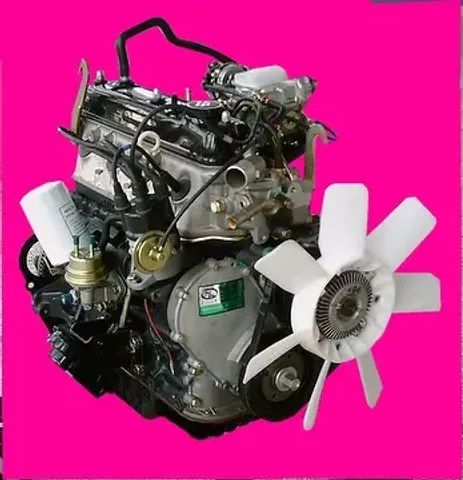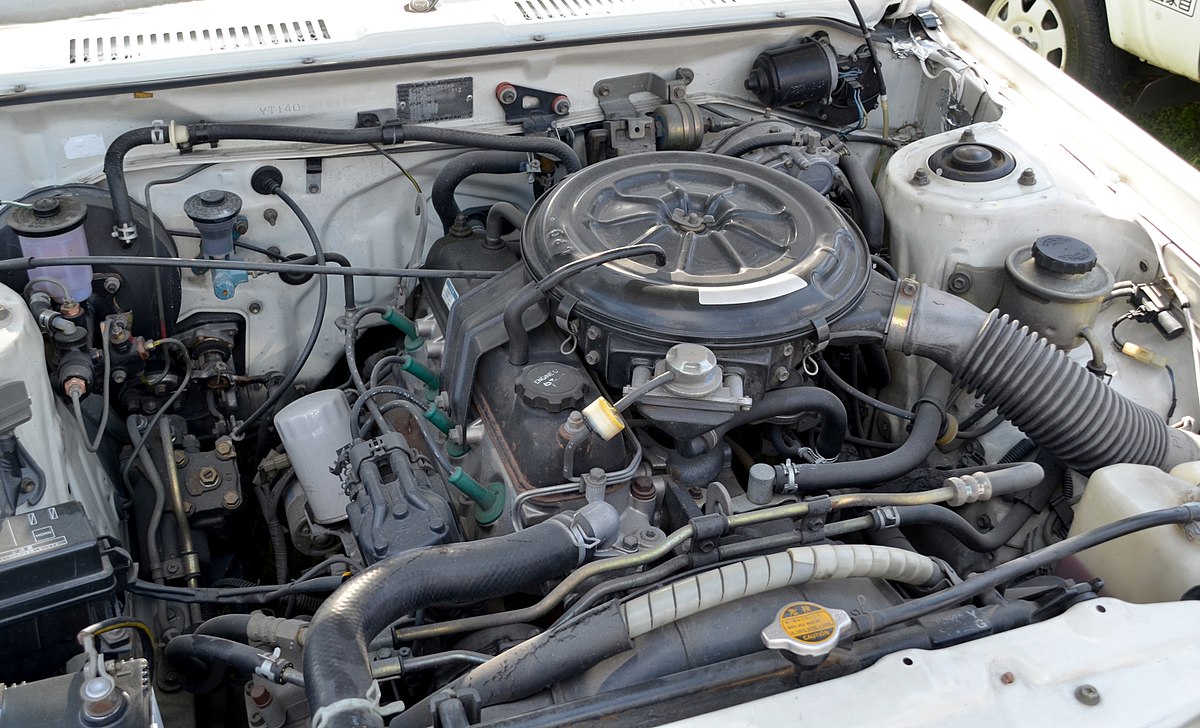Exploring the Benefits of the 4Y Engine for Automotive Enthusiasts
Exploring the Benefits of the 4Y Engine for Automotive Enthusiasts
Blog Article
Checking Out the Various Kinds of Engine: Which One Fits Your Demands?
Inner burning engines continue to control due to their reliability, while electric engines are getting grip for their sustainability. Crossbreed engines offer a versatile compromise, and diesel engines stand out for their power in demanding applications.

Internal Combustion Engines
Internal combustion engines (ICEs) are the foundation of modern transportation, powering a vast variety of cars from vehicles to planes. These engines operate the principle of transforming gas right into mechanical power through a series of controlled surges within a burning chamber. The most usual sorts of ICEs consist of fuel engines, diesel motor, and rotating engines, each designed to fulfill specific efficiency and efficiency demands.
Gasoline engines typically make use of spark ignition, while diesel engines rely upon compression ignition, leading to distinctive distinctions in gas efficiency and power result (4y engine). Rotating engines, or Wankel engines, use a portable style and smooth operation, however are much less generally made use of in mainstream applications
ICEs have actually undertaken significant improvements in modern technology, including the introduction of turbocharging and gas injection systems, which boost total efficiency and efficiency. Despite their performance improvements, ICEs deal with enhancing scrutiny as a result of their ecological impact, specifically pertaining to greenhouse gas emissions. As the vehicle market evolves, the future of ICEs continues to be a topic of debate, stabilizing efficiency, effectiveness, and ecological considerations. They proceed to play an important role in global transportation infrastructure.
Electric Engines
As issues about ecological sustainability and nonrenewable fuel source dependence grow, electrical engines have actually arised as a compelling alternative to internal combustion engines. These engines utilize electrical motors powered by batteries or gas cells, offering a cleaner and a lot more effective methods of propulsion.
Among the primary advantages of electrical engines is their minimized exhausts. Unlike typical engines that melt fossil gas, electrical engines generate zero tailpipe exhausts, considerably lowering air contamination and adding to enhanced public health and wellness. Additionally, the efficiency of electric motors frequently goes beyond that of inner combustion engines, converting a better percentage of power from the source of power right into usable energy for movement.
Electric engines are additionally noteworthy for their peaceful operation, making them perfect for metropolitan environments. 4y engine. The simpleness of their style leads to fewer moving components, which can bring about reduced upkeep prices and enhanced dependability with time
However, obstacles remain, including battery production influences, billing facilities, and range restrictions. Despite these hurdles, the expanding financial investment in electric automobile technology and renewable resource sources factors toward a promising future for electric engines, positioned to play an essential duty in the shift towards sustainable transport.
Hybrid Engines
Blending the advantages of both electric and standard internal combustion engines, hybrid engines represent a versatile remedy in the mission for efficient and sustainable transport. These engines integrate a gasoline or diesel engine with an electric motor, permitting boosted fuel effectiveness and decreased discharges compared to traditional lorries.
Crossbreed engines run in a number of settings, utilizing try this out the electrical motor for low-speed driving and the internal combustion engine for greater rates or when more power is required. This vibrant procedure not only boosts fuel economic climate however likewise adds to a smoother driving experience. Regenerative braking is one more critical feature, recording energy normally shed throughout braking and redirecting it to reenergize the battery.

As consumers significantly prioritize eco-friendliness, crossbreed engines stand apart as a functional option, using an effective equilibrium of efficiency, efficiency, and environmental duty. This flexibility makes them suitable for urban commuting and long-distance travel alike.
Diesel Motor
Efficiency and power are trademarks of diesel engines, which have long been preferred for their toughness and fuel economic situation. These engines operate the principle of compression ignition, where air is pressed to a heat prior to gas is injected, igniting it without the demand for ignition system. This procedure makes it possible for diesel motor to accomplish higher thermal efficiency compared to fuel engines, converting into better gas gas mileage and reduced co2 exhausts.
Diesel engines are particularly well-suited for durable applications such as trucks, buses, he said and industrial machinery, where torque and longevity are critical. Their design commonly includes more powerful elements to withstand the higher stress generated throughout operation, causing longer life span and minimized maintenance costs.

Alternative Fuel Engines
While diesel engines have long controlled the landscape of heavy-duty source of power, alternate fuel engines are gaining traction as feasible options for a much more lasting future. These engines utilize a selection of fuels, such as compressed all-natural gas (CNG), hydrogen, gas, and ethanol, aiming to lower greenhouse gas discharges and dependence on nonrenewable fuel sources.
One significant benefit of different gas engines is their possible to lower carbon impacts. As an example, CNG engines discharge less pollutants contrasted to standard diesel engines, making them appropriate for metropolitan transit systems and fleets seeking to improve air high quality. Ethanol, obtained from biomass, not just decreases emissions but additionally supports farming economic situations.
Hydrogen gas cells stand for a sophisticated development in this realm, using zero-emission power with a chain reaction between hydrogen and oxygen. Challenges such as framework advancement and manufacturing expenses stay obstacles to prevalent fostering.
Verdict
In final thought, choosing the proper engine type requires cautious factor to consider of certain requirements and choices. Internal combustion engines provide integrity, while electrical engines prioritize sustainability and lowered upkeep. Crossbreed engines incorporate the benefits of both, enhancing performance, whereas diesel engines provide superior power and torque for durable applications. Alternative gas engines existing environment-friendly straight from the source alternatives, albeit with potential facilities obstacles. Eventually, a detailed assessment of driving routines and ecological values will certainly help with an informed decision concerning engine choice.
Crossbreed engines supply a versatile concession, and diesel engines stand out for their power in demanding applications. The most usual types of ICEs consist of gasoline engines, diesel engines, and rotary engines, each developed to meet details performance and performance demands.
Unlike standard engines that melt fossil gas, electrical engines produce no tailpipe exhausts, significantly reducing air contamination and adding to boosted public wellness.Hybrid engines operate in a number of settings, using the electric motor for low-speed driving and the interior burning engine for greater rates or when even more power is needed. Crossbreed engines incorporate the benefits of both, enhancing effectiveness, whereas diesel engines give superior power and torque for heavy-duty applications.
Report this page